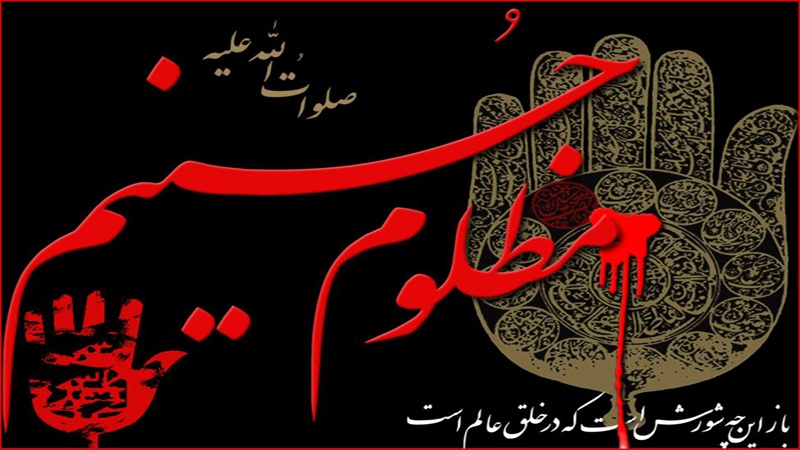The Fast of 'Ashura

Some traditions are found in Sunni books to the effect that the Prophet (s.a.w.) on migrating to Medina found the Jews fasting on the 10th of Muharram. He asked them why, and was told: “It is an auspicious day; it is the day when God delivered the children of Israel from their enemy (i.e. Pharaoh); and, therefore, Moses fasted on that day.”
The Prophet (s.a.w.) said, “I am worthier of Moses than you are.” Thereupon, he fasted on that day and ordered (the Muslims) to fast.
1. al-Sahih of al-Bukhari, Vol.3; Egypt ed.; p.54
2. Mishkatul-Masabih; Delhi ed.; 1307 A.H.; p.l72
It is noted by the commentator of Mishkatul-Masabih that “it was in the second year, because in the first year the Prophet had arrived at Medina after 'Ashura, in Rabi'ul-awwal.”
How much importance was this fast supposed to have may be judged from another tradition narrated in al-Sahih of al-Bukhari: “The Prophet (s.a.w.) ordered a man from the (tribe of) Aslam: Announce to the people that whoever has eaten should fast the rest of the day, and whoever has not eaten should fast (the whole day), because today is the 'Ashura (10th day of Muharram).”
That very year the fast of Ramadan was ordained and the obligation to fast on 'Ashura was abrogated, as has been claimed in other traditions narrated in the same book. Still, reportedly, it carries much importance as a voluntary fast.
Now let us look closely at these traditions:
First: The Jews had their own calendar and months. There is no logic in saying that they fasted on the 10th of Muharram - unless it could be proved that this date always coincided with a Jewish day of fast.
It was mentioned in my article, “Martyrdom of Imam Husayn and the Muslim and the Jewish Calendars” (Al-Serat, Vol. VI, No's 3 & 4; Muharram 1401 Nov. 1980) that the first month of the Jews (Abib, later named Nisan) coincided with Rajab of the Arabs. W.O.E. Oesterley and Theodore H. Robinson have written that in Arabia “the most important of all the new-moon festivals was that which fell in the month of Rajab (sic), equivalent to the Hebrew month 'Abib, for this was the time when the ancient Arabs celebrated the Spring festival.” (Hebrew Religion; S.P.C.K., London; 1955; p.128)
Probably, in ancient times the two branches of Abraham's house followed the same system of intercalating an additional month 7 times in a cycle of 19 years. And in this way the 7th Jewish month, Tishri I, coincided with Muharram.
And the 'Ashura of Muharram synchronized with 10th of Tishri I, the Jewish Day of Atonement - a day of fast. In that article, it was observed that the two calendars lost their synchronization when Islam, in the 9th year of hijra, disallowed intercalation.
But on deeper consideration it transpired that that parity was lost long before the advent of Islam, because the Arabs did not follow any mathematical calculation in their intercalation. That was why the Muharram of the 2nd year of Hijra began on 5th July, 623 C.E. (Al-Munjid, 21st ed.), months before Tishri I (which always coincides with September-October).
Clearly, 'Ashura of Muharram in that year (or, for that matter, during the Prophet's whole life at Medina) had no significance whatsoever for the Jews.
The question is: Why did they fast on that day?
Second: The Jewish Midrashic literature relates the 10th day of the 7th month (Yom Hakippurim - Day of Atonement) to the event of bringing the tablets of the Covenant from Mount Sinai, as Dr. Mishael Maswari-Caspi has written in his letter, quoted in my previous article, mentioned above.
The question is: If the Jews had wanted to keep the long-lost synchronization of Tishri I and Muharram in view, how was it that they forgot to narrate this tradition to the Prophet?
Third: The month in which God delivered the Israelites from Pharaoh was Abib (i.e. Rajab), as the Bible clearly says: “Observe the month of Abib, and keep the passover unto the Lord thy God: for in the month of Abib the Lord thy God brought thee forth out of Egypt by night.” (Deut., 16:1)
The question is: How could the Jews transfer an event of Abib (originally coinciding with Rajab) to Muharram, in open defiance of their Torah?
And lastly here is a point to ponder for the Muslims: The Prophet (s.a.w.) was sent with a religion to abrogate all previous religions and shari'ah. How was it that he deigned to imitate the custom of the Jews?
It is clear from above-mentioned facts that the Jews had no reason at all to fast on 'Ashura of Muharram at that period; and this story, built on that premise, is just that - a fiction. Obviously, it was invented by a narrator who only knew that once upon a time Muharram coincided with the Jews' Tishri I; but was totally unaware of contemporary Jewish religion and culture.
One feels constrained to mention here that this and other such traditions were forged by camp-followers of the Umayyads, after the martyrdom of Imam Husayn, as a part of their campaign to turn the 10th of Muharram into a day of rejoicing.
These traditions are of the same genre as those which say that it was on the 10th of Muharram that Noah's ark rested on Mount Arafat, the fire became cool and safe for Abraham, and Jesus ascended to the heaven. In the same category came the traditions exhorting the Muslims to treat 'Ashura as a festival of joy, and to store one's food-grain on this very day as it would increase one's sustenance and bring the blessings of Allah to the household.

